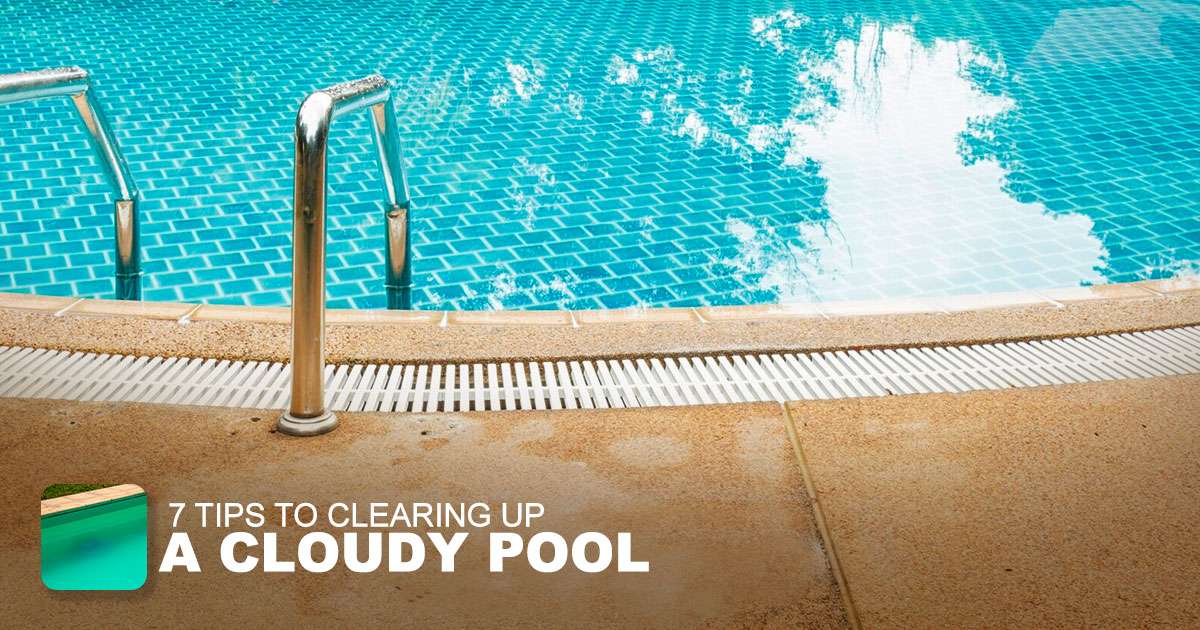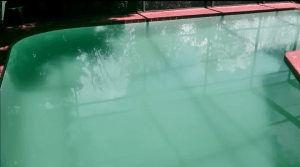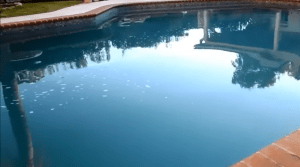7 Best Tips to Cleaning A Cloudy Pool & How to Keep it Clean

A sparkling, clear pool is an inviting oasis, but cloudy pool water can turn your swim haven into a murky mystery. In this guide, we’ll explore the reasons behind a cloudy pool and unveil seven effective tips to restore your pool’s clarity. Let’s dive into the key question: how to clear up cloudy pool water.
Why Is my pool cloudy?
Cloudiness in pool water can be attributed to a multitude of factors, each playing a role in the overall water quality. Gaining insight into these offenders is essential to getting your pool back to its original, flawless condition.

- Improper Chlorine Levels: Insufficient chlorine levels lead to the formation of chloramines, causing cloudiness. Regular testing and adjustment are essential for maintaining optimal chlorine levels.
- Imbalanced pH and Alkalinity: pH imbalance affects chlorine efficiency and water clarity. Utilize pH reducers or increasers to keep the pH within the recommended range of 7.4-7.8. Maintain total alkalinity between 80-120 ppm for overall water stability.
- High Calcium Hardness: Water that is too harsh on calcium might become hazy and start to scale. Partially draining and refilling the pool helps maintain calcium hardness levels between 200-400 ppm.
- Faulty Filters: Poor filtration, whether due to worn-out filters or inadequate circulation, contributes to cloudiness. Regularly clean, backwash, or replace filter media according to manufacturer guidelines.
- Early Algae Growth: Algae in its early stages can cause cloudiness. Conducting an overnight chlorine loss test (OCLT) and using chlorine shock helps eliminate ammonia and control algae growth.
- Ammonia Presence: Low free chlorine levels may lead to ammonia presence. Monitoring and maintaining proper free chlorine (FC) levels are crucial for preventing ammonia-related cloudiness.
- Debris Accumulation: Visible debris, including leaves and other foreign particles, can cloud the pool. Regular removal using nets and prompt cleaning are essential preventive measures.
Will a cloudy pool clear up on its own?
The natural question arises: will a cloudy pool resolve itself over time? While mild cloudiness due to factors like heavy pool use or rainfall may dissipate independently, persistent cloudiness often demands proactive intervention for effective resolution. Quick action ensures a timely return to crystal-clear waters.

Is It safe to swim in a cloudy pool?
Swimming in a cloudy pool poses significant health and safety risks. Cloudy water indicates the presence of bacteria, pathogens, and contaminants that can cause infections and irritations. Additionally, poor visibility increases the risk of accidents. Addressing cloudiness promptly is crucial before considering pool use to ensure a safe and enjoyable swimming environment.
Health risks associated with cloudy pools
- Bacterial Presence: Cloudy water often harbors bacteria, including E. coli, posing a risk of urinary tract infections and gastrointestinal issues.
- Pathogen Contamination: Pathogens thriving in cloudy water can lead to skin irritations and respiratory problems upon exposure.
- Poor Visibility: Limited visibility increases the risk of accidents, making it challenging to identify potential hazards or struggling swimmers.
Importance of Prompt Action
- Water Clarity and Safety: Clearwater is a key indicator of a well-maintained pool, ensuring a safer and more enjoyable swimming experience.
- Timely Water Treatment: Address cloudiness promptly by identifying and resolving underlying issues to prevent health risks.
- Accident Prevention: Keeping the water clear improves sight, lowers the chance of mishaps, and increases pool safety overall.
How to clean a cloudy pool?
Cleaning a cloudy pool’s duration depends on the severity of cloudiness and the chosen remedial actions. While certain products can expedite the process, it’s crucial to note that quick fixes might not always provide lasting results. Let’s delve into seven practical tips to effectively clear up cloudy pool water.
7 Tips for clearing up cloudy pool water
1. Balance free chlorine levels
Low free chlorine levels can result in chloramine formation, causing cloudiness. To increase free chlorine in the pool, shock it with sodium hypochlorite or liquid chlorine. To stop recurrence, regular maintenance and testing are essential.
2. Eliminate ammonia and algae
To find ammonia or algae, do an overnight chlorine loss test (OCLT). Use chlorine shock to address ammonia and early-stage algae. Regularly monitor and maintain proper FC levels to prevent future issues.
3. Monitor and balance pH and total alkalinity
pH imbalance affects chlorine efficiency and water clarity. Use pH reducers or increasers to maintain the recommended pH range (7.4-7.8). Ensure total alkalinity falls within the 80-120 ppm range for overall water stability.
4. Correct calcium hardness levels
High calcium hardness causes scaling and murky water. Empty and restock the pool partially to keep the CH level between 200 and 400 ppm. Water clarity depends on the calcium hardness levels being regularly tested and adjusted.
5. Backwash filter or replace filtering agent
Clean or replace filter media (sand, DE, or cartridge) regularly. Ensure proper circulation and filtration to prevent cloudiness. Adhere to manufacturer guidelines for filter maintenance to optimize performance.
6. Remove foreign particles and mineral deposits
Use nets to remove visible debris promptly. Consider pool clarifiers or flocculants for persistent cloudiness. Scrub and vacuum the pool to eliminate fine particles and maintain overall water clarity.
7. Preventive measures
Regularly test and maintain pool chemistry to prevent cloudiness. Adopt proper filtration practices, including backwashing and cleaning. Promptly address environmental factors to avoid debris accumulation and ensure a consistently clear pool.
How to prevent your pool from becoming cloudy
Preventing cloudy pool water requires consistent maintenance and proactive measures:
Test Pool Chemistry Weekly: To keep the ideal water balance, evaluate the chemistry of the pool regularly and make adjustments as needed.
Maintain Filter Health: Backwash filters, clean cartridges, or replace filter media regularly to ensure efficient filtration.
Prompt Debris Removal: Address any visible debris promptly through regular skimming and cleaning routines.
Consider Pool Cover Usage: Reduce the impact on the environment by thinking about using a pool cover while it’s not in use. This helps prevent debris accumulation and maintains water clarity.
By adopting these preventive measures and implementing effective cleaning techniques, you can ensure your pool remains a clear and inviting oasis for relaxation and enjoyment.
Take proper care of your pool
Achieving and maintaining a clear pool requires dedication and adherence to proper maintenance practices. By understanding the causes of cloudy pool water and implementing these seven effective tips, you can transform your pool into a pristine oasis. Pool water that is continuously clear and welcoming can only be enjoyed with regular maintenance and preventative measures. Take a plunge and clear the water in your pool!

